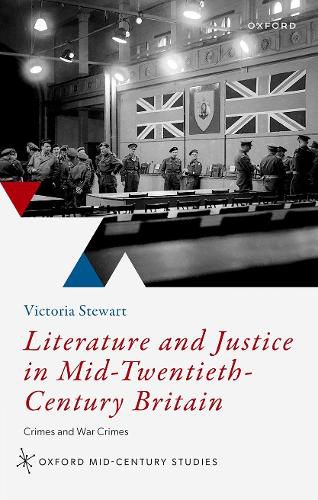Readings Newsletter
Become a Readings Member to make your shopping experience even easier.
Sign in or sign up for free!
You’re not far away from qualifying for FREE standard shipping within Australia
You’ve qualified for FREE standard shipping within Australia
The cart is loading…






Literature and Justice in Mid Twentieth Century Britain: Crime and War Crimes examines how ideas about crime, criminality, and judicial procedure that had developed in a domestic context influenced the representation and understanding of war crimes trials, victims of war crimes, and war criminals in post-Second World War Britain. The representation of Belsen concentration camp and the subsequent British-run trial of its personnel are a particular focal point. Drawing on a range of source material including life-writing, journalism, and detective fiction, as well as criminological and sociological works from this period, this book explains why the fate of the Jews and other victims of the Nazis was sometimes brought starkly into focus and sometimes marginalised in public discourse at this period. What remain are glimpses of the events now called the Holocaust, but glimpses that can be as powerful and as meaningful as more direct or explicit representations.
$9.00 standard shipping within Australia
FREE standard shipping within Australia for orders over $100.00
Express & International shipping calculated at checkout
Literature and Justice in Mid Twentieth Century Britain: Crime and War Crimes examines how ideas about crime, criminality, and judicial procedure that had developed in a domestic context influenced the representation and understanding of war crimes trials, victims of war crimes, and war criminals in post-Second World War Britain. The representation of Belsen concentration camp and the subsequent British-run trial of its personnel are a particular focal point. Drawing on a range of source material including life-writing, journalism, and detective fiction, as well as criminological and sociological works from this period, this book explains why the fate of the Jews and other victims of the Nazis was sometimes brought starkly into focus and sometimes marginalised in public discourse at this period. What remain are glimpses of the events now called the Holocaust, but glimpses that can be as powerful and as meaningful as more direct or explicit representations.